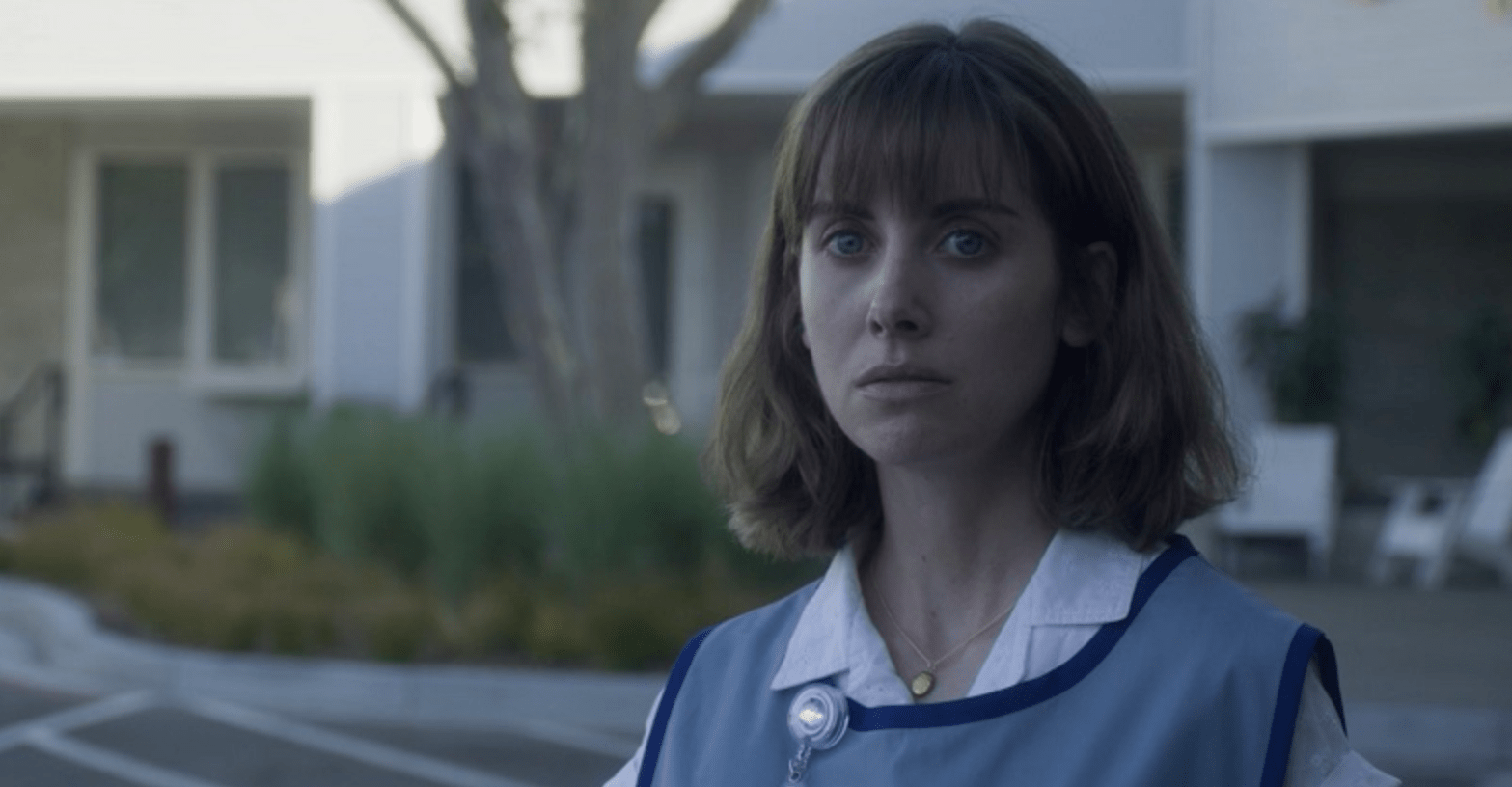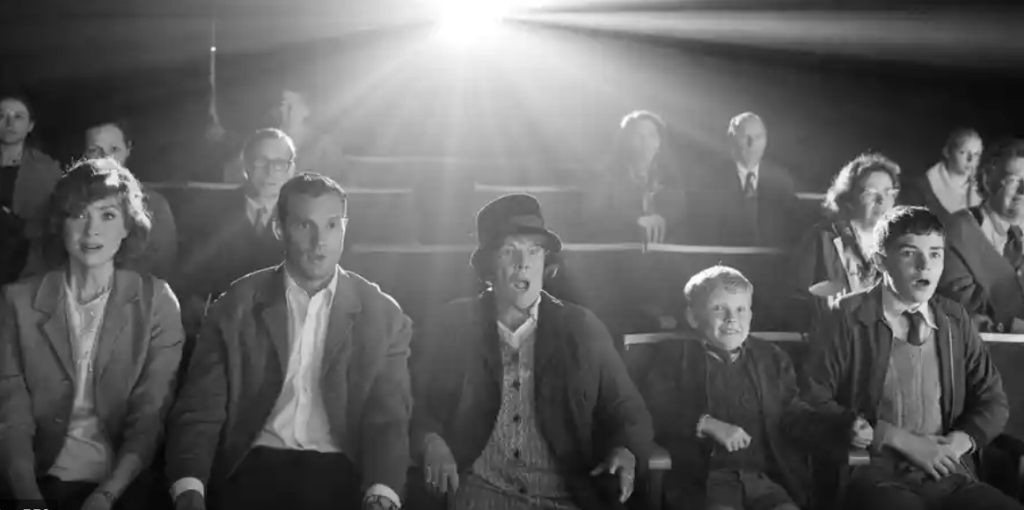
The multi-talented triple-threat writer/director/actor Sir Kenneth Branagh spent his time in quarantine writing his most personal and introspective film to date. Belfast recalls his experience growing up in Northern Ireland during the civil unrest between the Protestants and the Catholics in the 1960s. Personally, it moved me more than any film has in a long time. But aside from its artistry, it also serves as a stark warning for a polarized society while offering some illuminating and crucial lessons for society.
First off, the aesthetics of the film are spectacular. From the cinematography to the acting, Belfast is a total gem of a film. In a toast to old Hollywood and riding a pulchritudinous wave of nostalgia, it’s shot in a pure picturesque black-and-white, thanks to the handy work of cinematographer Haris Zambarloukos. By venturing back into the past with complexity and warmth, Branagh encapsulates a world that echoes powerfully with our own.
Secondly, we have arguably one of the most remarkable ensembles of the year. Branagh has made a name for himself as a masterful filmmaker. But Belfast may be his capstone masterpiece due to his unforgettably vivid characters and deep storyline. Of course, the fact that the film is made with so much authenticity and heart certainly doesn’t hurt. But moreover, Branagh’s masterpiece offers, in my opinion, the ensemble of the year along with a vital message.
Dame Judi Dench is a complete riot as Granny. The alluring Caitriona Balfe is a sensation as Ma. And Jamie Dornan embraces the patriarch role of Pa with such a healthy and enthusiastic masculinity. Dornan also offers a rendition of “Everlasting Love” that is, in my opinion, one of the best song and dance sequences in the history of cinema. I had that song on repeat for months after the first screening, and it is still number one on my Spotify wrapped list. But of course, it’s Jude Hill (Buddy) who is the star of the show. Seeing this story unfold from the perspective of an innocent child provides an extreme amount of value, objectivity, and impact.
Lastly, Belfast also serves as a love letter to cinema. While this is Branagh’s personal account, he places little Easter eggs in the film that show his own love for film. The one that really hit home for me, as a cinephile, is the theatre sequence when the entire family goes to the cinema to watch Chitty Chitty Bang Bang (1968). The final shot of the movie is also something that will stay with me, like a moveable feast, for the rest of my life.
Beyond its aesthetic, there are so many universal themes and subtle warnings under its winsome surface intrinsically woven into its tour de force storyline. One could even draw a comparison to what happened in Northern Ireland in the 1960s to the modern political discourse, polarization, and tribalist culture in the United States– which makes this film essential viewing for our current climate.
In fact, Barbra F. Walter, a political strategist at the University of California, San Diego, claims in her new book (out later this month) that another American civil war is far from unlikely, especially since the insurrection on January 6th of last year. “I’ve seen how civil wars start, and I know the signs that people miss. And I can see these signs emerging here at a surprisingly fast rate,” Walter insists.
What’s more, Thomas Homer-Dixon, a violent conflict scholar, predicts that by 2025, “American democracy could collapse, causing extreme domestic political instability, including widespread civil violence.” Even more concerning, Politico’s John Harris claims that “serious people now invoke ‘Civil War’ not only as a metaphor but as literal precedent.” While The Atlantic’s Fintan O’ Toole advises that the prophecies of civil war can be self-fulfilling. And even goes as far as to cite the long conflict in Ireland, highlighting the fact that each side was motivated “by fear that the other was mobilizing.” Branagh even elucidated in a recent interview that they were a family who believed that nothing could change “until everything changed.”
There’s even a line in the film delivered by a warm and wise Ciarán Hinds (Pop) when he’s helping his grandson, Buddy, with his math homework. Buddy explains that there can only be one right answer. To which Pop replies, “If that were true, people wouldn’t be blowing themselves up all across this town.” Pop was alluding to the civil unrest stemming from a nationalist mentality and both sides, the Catholics and the Protestants, thinking they were on the right side of history whilst being willing to fight and kill others in order to defend their opposing beliefs simply because were not operating on the same baseline of truth. And for me, that line evokes thoughts of the alarming current state of the union in America.
Digging even deeper, the film also widens the lens of humanization and brings awareness to the necessity to migrate that some experience to flee their homeland in order to protect their families and provide a better life for their children. At one point in the film, Ma (Balfe) exclaims that she could never leave Belfast. Despite the violence in the streets and high unemployment in their native country, she was concerned about nationalism and how her family would be treated as immigrants abroad. This highlights the courage it takes for a family to leave their home in search of a better life and the harsh realities of the world in which we live due to humanity’s xenophobic tendencies. And if that’s not a message worth sharing, I don’t know what is.
As far as awards go, I honestly can’t think of any other film more deserving of The Academy’s top-prize and coveted recognition that comes with a Best Picture win. Perhaps that’s why it is the only film with all four main guild nominations: Directors Guild, Producers Guild, American Cinema Editors, and the Screen Actors Guild.
Belfast is a cathartic homage that showcases a talented artist’s admiration for his heritage. It’s a symbol of respect for an entire nation. It’s also a subtle warning of the dangers of the polarization of people; therefore, it’s arguably the most vital film of the year.

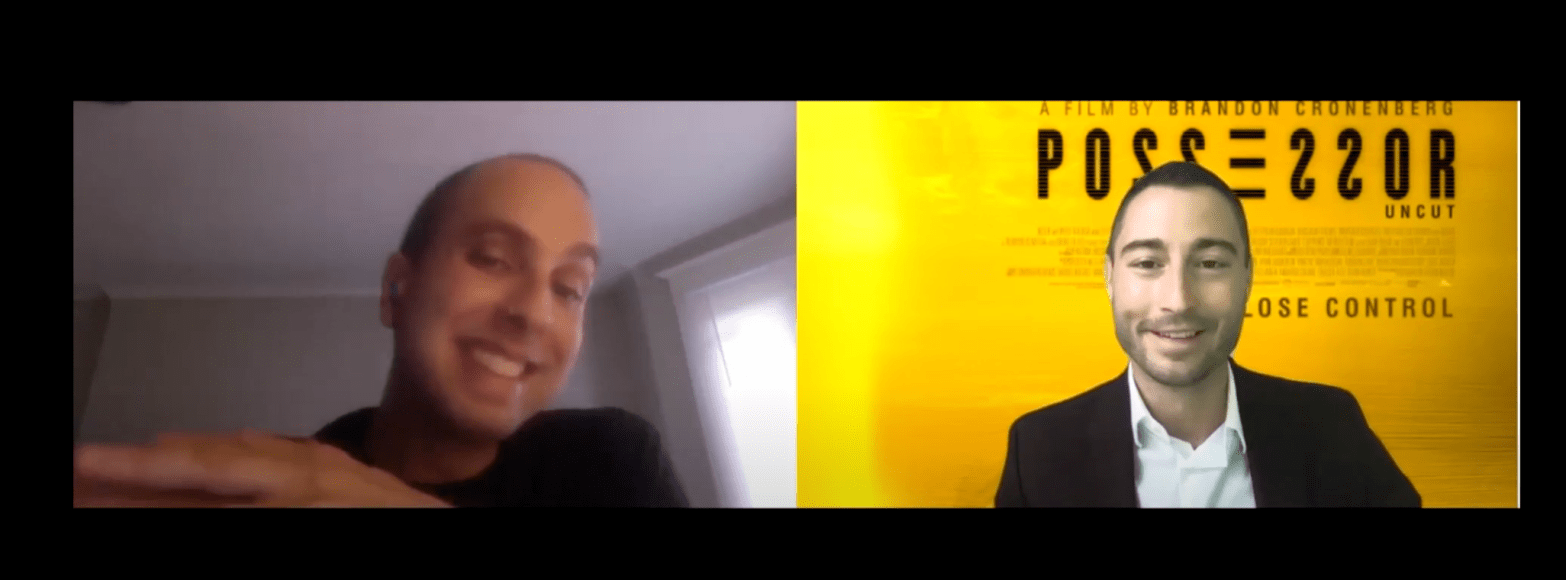
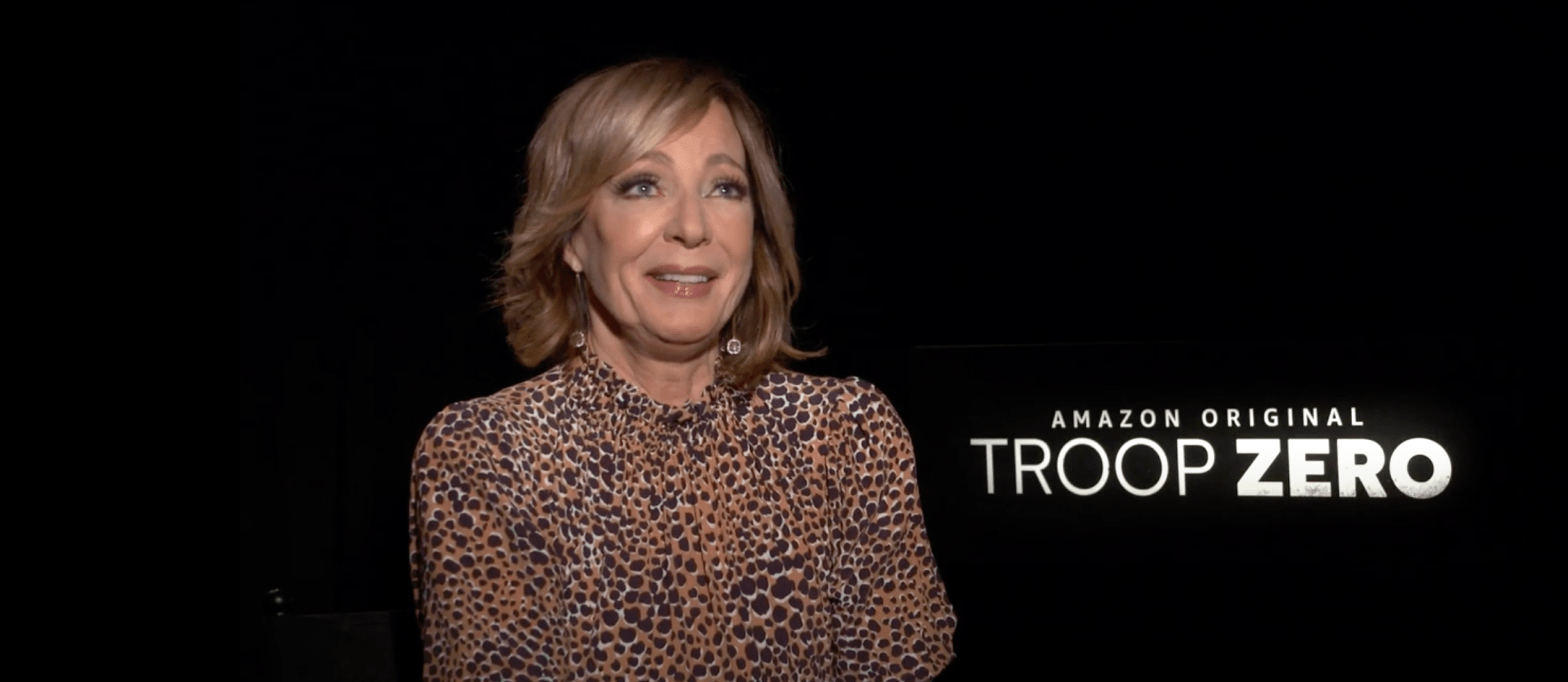

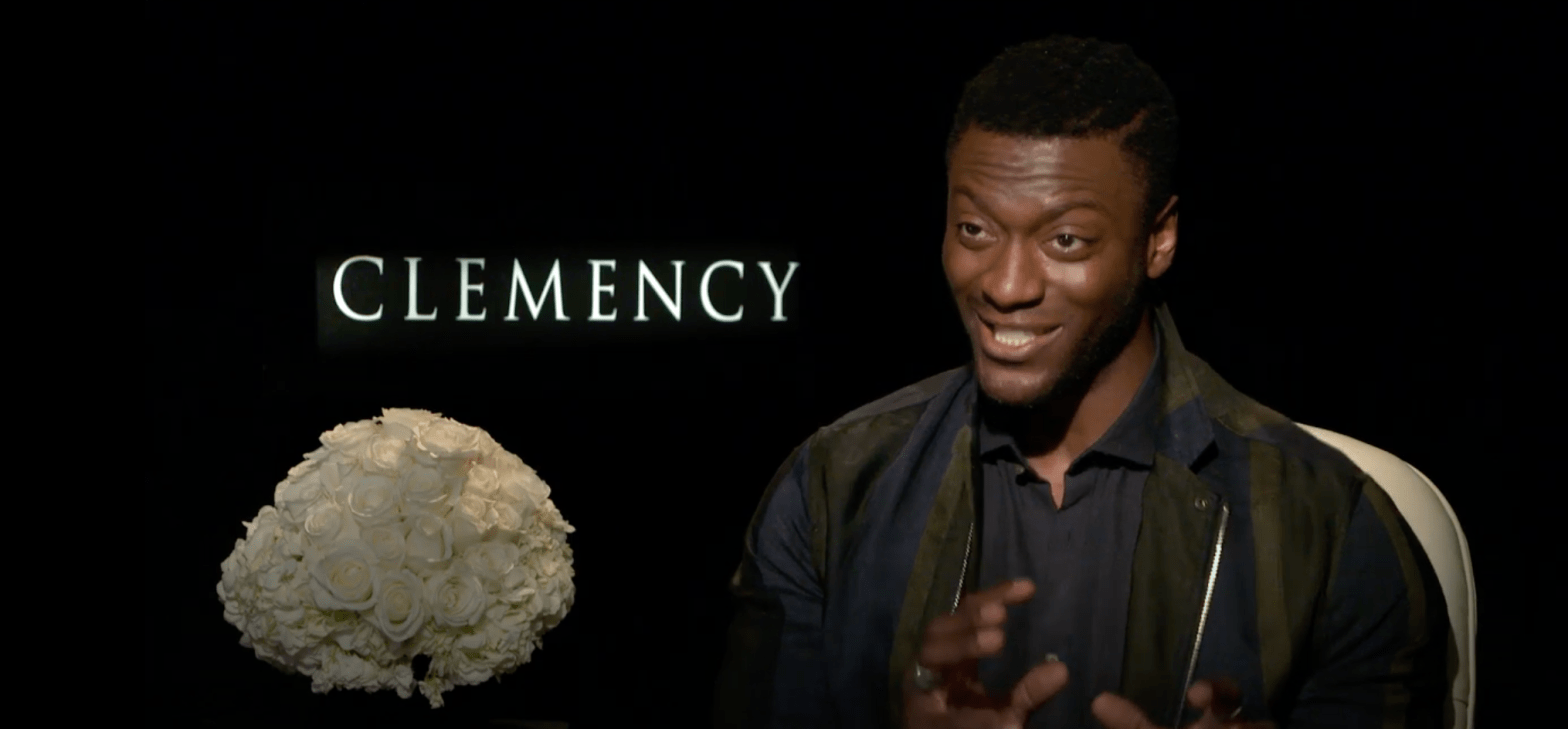
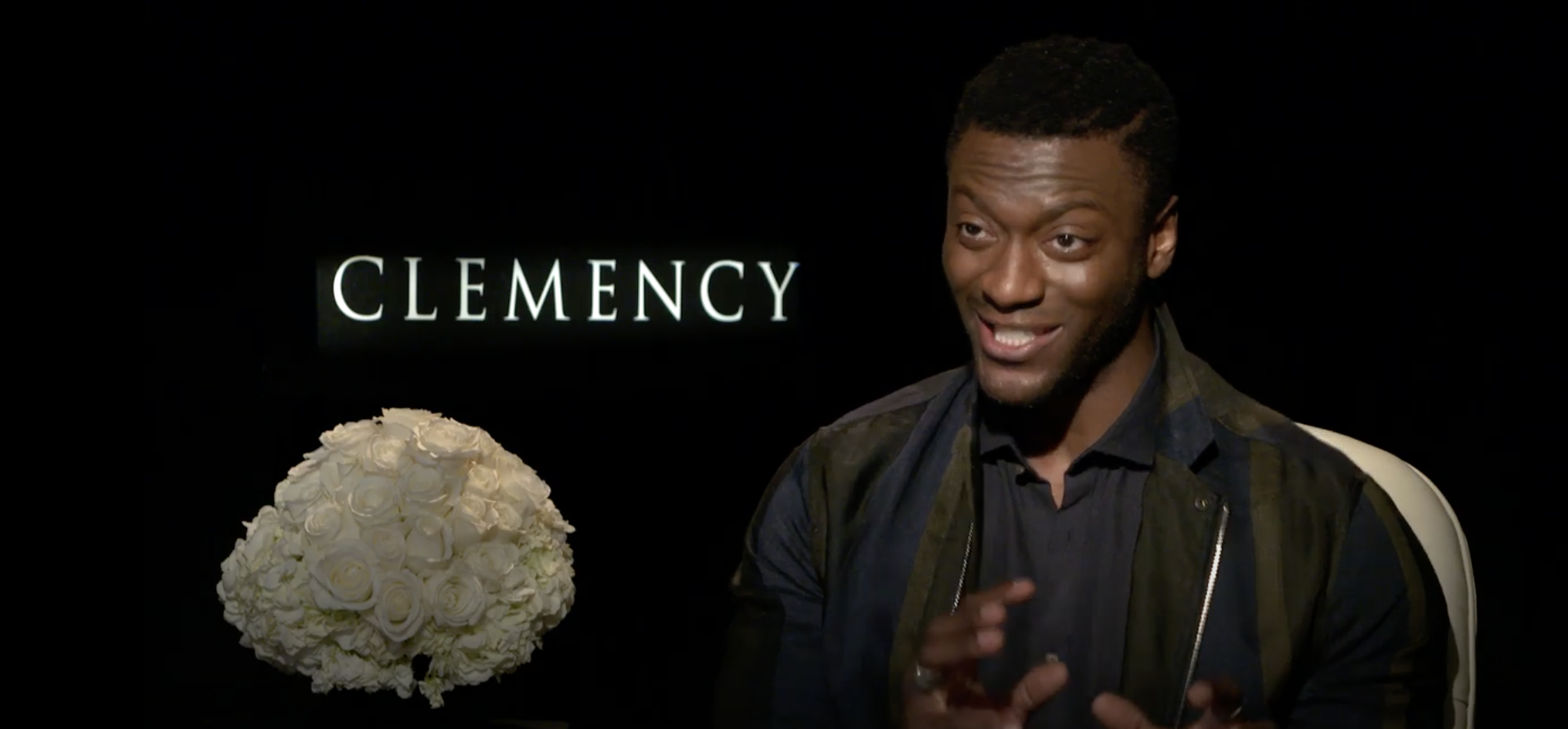 The drama Clemency explores what kind of toll death row and its executions takes on those who must carry them out.
The drama Clemency explores what kind of toll death row and its executions takes on those who must carry them out.